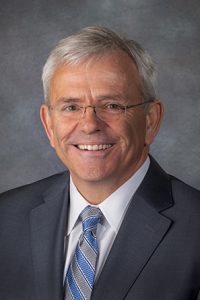Earlier parole eligibility considered
A bill that seeks to address the overcrowding crisis in Nebraska’s correctional system was discussed by the Judiciary Committee Feb. 19.

Under LB1004, sponsored by Omaha Sen. Steve Lathrop, a committed offender automatically would be eligible for parole within two years of their mandatory discharge date, unless they are eligible for parole at an earlier date.
Lathrop said the bill has the potential to provide relief in the state’s overcrowded prison system.
“If someone comes in and they are parole eligible after a short period of time as a consequence of [this bill], that person still has to check all the boxes before the parole board … to be a suitable candidate,” he said. “But it does have the potential to provide the board with more candidates to choose from at a time when we’re approaching the overcrowding designation on July 1, 2020.”
Joe Nigro, representing the Nebraska Criminal Defense Attorneys Association, supported the bill. When parole eligibility and discharge dates are too close to each other, he said, many inmates will opt to stay in prison rather than risk making a mistake while out on parole.
“The research is clear that people coming out of prison under supervision are less likely to reoffend,” Nigro said. “Having a bigger gap between parole eligibility and discharge gives inmates a greater incentive to [seek] parole.”
Also speaking in support of LB1004 was Aaron Hanson, representing the Omaha Police Officers Association. Successful reentry into society is critical, he said, and post-release supervision is a big factor.
“It is one of the scariest situations when an inmate intentionally decides that he or she would rather ‘jam’ out as opposed to supervised release,” Hanson said. “[These people] are exactly the targeted population who need supervision.”
No one testified in opposition to the bill and the committee took no immediate action on it.

